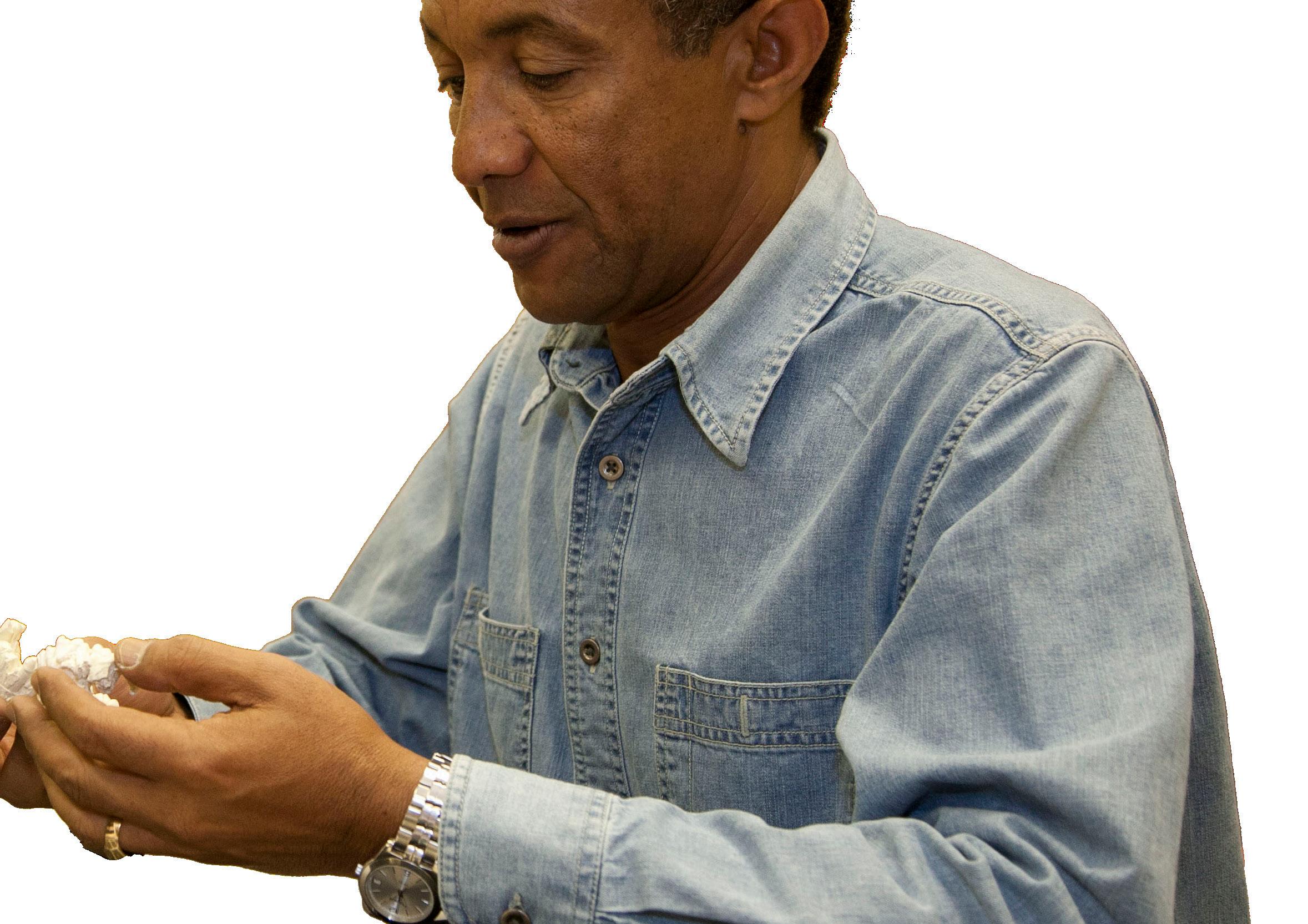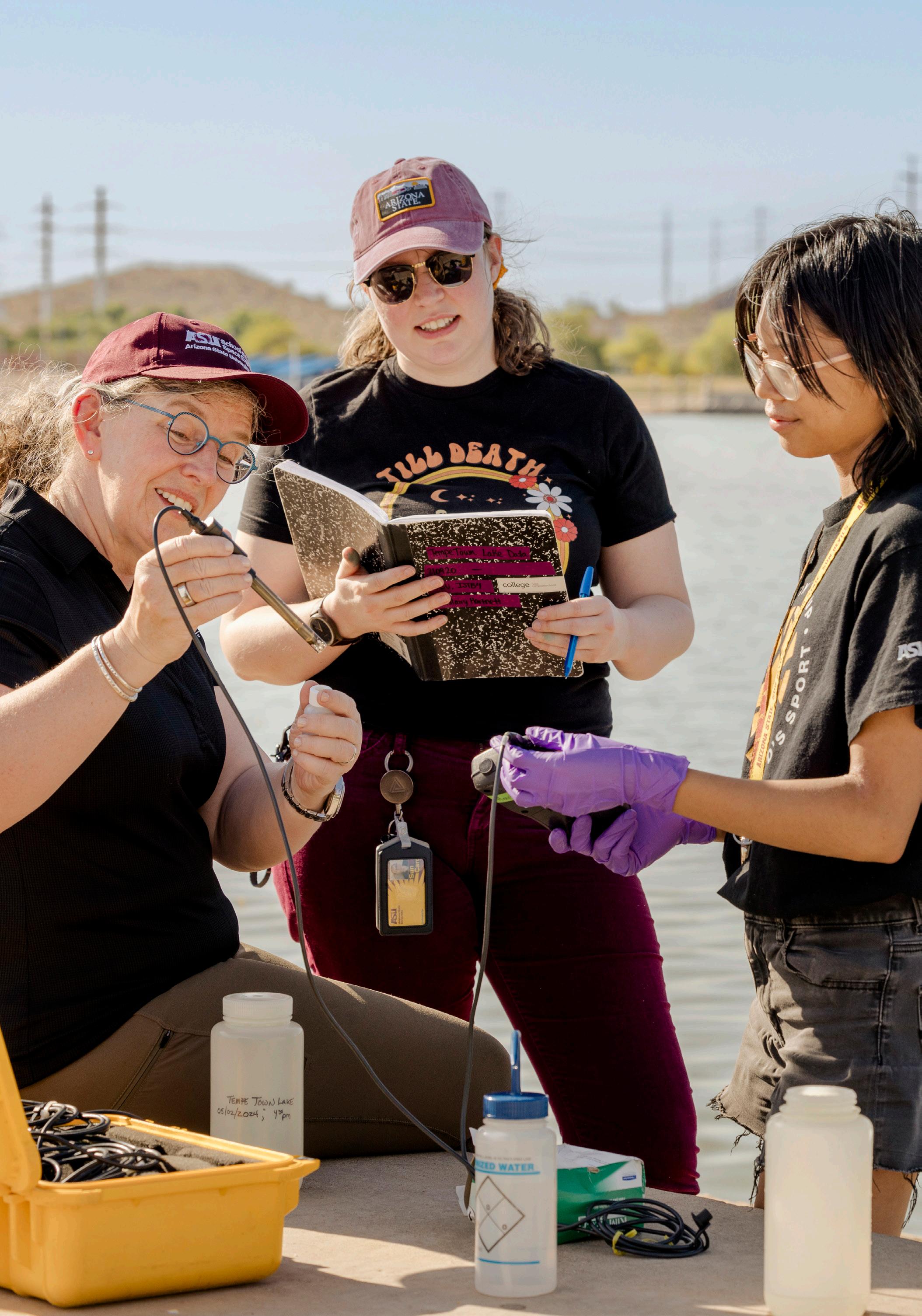

our planetary relationships Reshaping
SW-IFL hosts a community event at the Desert Botanical Garden, displaying tools, gear and research.
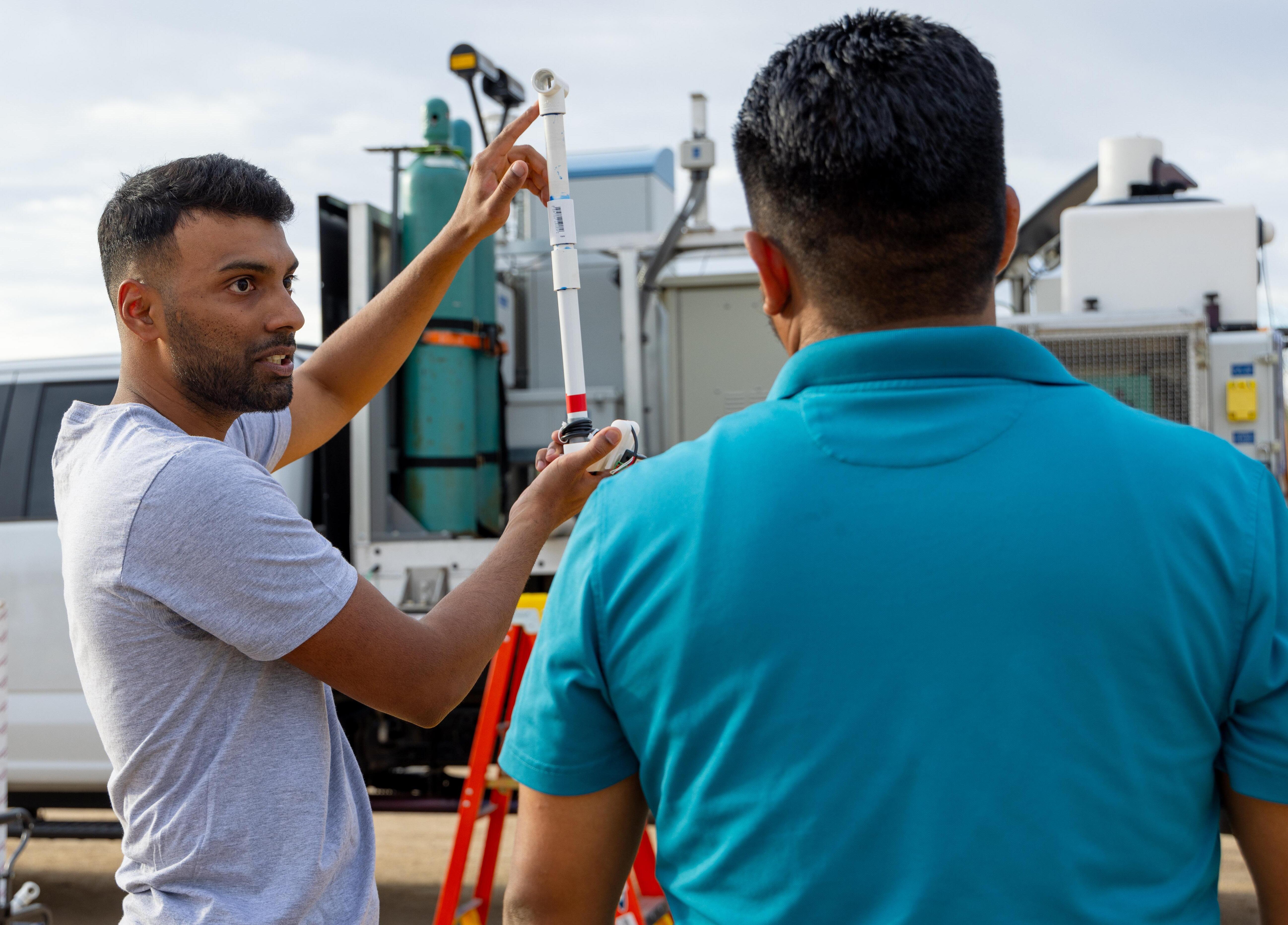
Developing scalable solutions to better preserve the Earth
From water scarcity to extreme heat, an increasingly hostile climate poses a threat to Arizona and many other regions. Reduced snowpack, shifting precipitation patterns and rising temperatures strain already limited water resources and push infrastructure to its limits. Addressing these challenges requires innovative, multidisciplinary solutions grounded in research and community engagement.
The College of Liberal Arts and Sciences is bringing together scientists, students and community leaders to develop actionable strategies to reshape relationships with the planet and work towards a more sustainable future.
Mitigating environmental concerns
In a cross-university e ort, the Southwest Urban Integrated Field Laboratory (SW-IFL) is researching community-driven solutions for the combined e ects of extreme heat, atmospheric pollutants and water scarcity on Arizona communities. The field laboratory is developing integrative research and learning experiences through scholar-community cohort fellowships, undergraduate summer “HeatMappers” experiences and K-12 curricular activities.
Innovative water conservation
In the American Southwest, a lack of water strains ecosystems, agriculture and communities. The College’s division of social sciences helps lead sustainability e orts like the Arizona Water Innovation Initiative. The project collaborates with industrial, municipal, agricultural, tribal and international partners to advance new approaches for water augmentation, e ciency, reuse and more.
Reconnecting with land
Through collaborations with local farms like Maya’s Farm, ASU Farm seeks to cultivate character and strengthen community by connecting to the land and one another. This mission is embodied in projects like Sparky’s Garden for Environmental Stewardship, where students and community members engage in hands-on learning about sustainability, stewardship and personal growth.
Ensuring dryland sustainability
With the mission of producing use-inspired research and solutions for drylands across the world, the Global Drylands Center brings together researchers, stakeholders and specialists to support the future health of the complex ecosystem. From ranchers to urbanites, the center addresses urgent climate needs to better preserve the future of drylands.
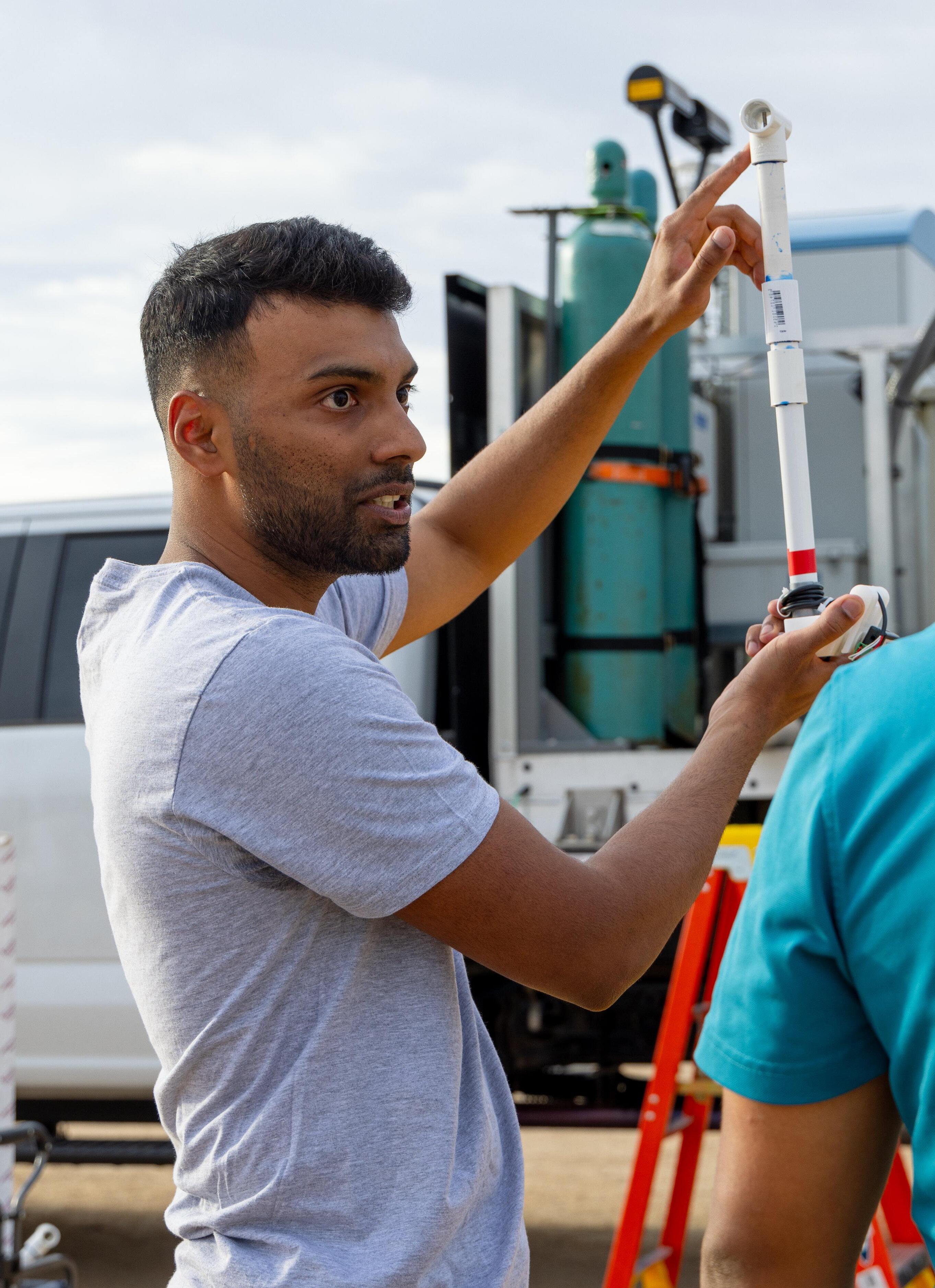
Connecting the human past to the global future
Developing scalable solutions to better preserve the Earth
Preparing Arizona’s future workforce
Through innovative research in paleoanthropology, genetics and human cultural evolution, scientists at the Institute of Human Origins are working to answer how modern humans have emerged and adapted to a changing planet and how humans have developed cultures and cooperation over time.
The institute’s current messaging,“Connecting the Human Past to the Global Future,” aims to reignite a global awareness of how we “became human” and promote the importance of connecting our human past to ensure our future success as inhabitants of this planet.
Experiential learning, such as internships, study abroad opportunities and research apprenticeships, prepare students with careerreadiness skills that are essential for entering the workforce.
This past year, the institute honored the 50th anniversary of a 3.2 million-year-old fossil known as “Lucy,” discovered by Founding Director Donald Johanson. It marked the first evidence of early human ancestors that walked upright.
From water scarcity to extreme heat, an increasingly hostile climate poses a threat to Arizona and many other regions. Reduced snowpack, shifting precipitation patterns and rising temperatures strain already limited water resources and push infrastructure to its limits. Addressing these challenges requires innovative, multidisciplinary solutions grounded in research and community engagement.
Unfortunately, for first-generation and lowerincome students, these programs can often seem out of reach. The Futures Initiative at The College of Liberal Arts and Sciences hopes to change that.
How you can engage with our e orts
Whether you are able to tune in to current conversations on planetary health or make a donation, your support can help The College educate the next generation and fuel world-class research in language, culture and society, critical thinking, scientific exploration and discovery.
Help advance the study of human origins and the next generation of young scientists by giving to the Institute of Human Origins Fund at asufoundation.org/IHO.
Join the e ort in ensuring the health of drylands around the world by donating to the Global Drylands Center Support at asufoundation.org/GlobalDrylands.
Humanist approach to support a healthy environment
Mitigating environmental concerns
In 2023, The College introduced a new degree in culture, technology and environment – the first to draw from all three schools in the humanities division: the Department of English, the School of International Letters and Cultures and the School of Historical, Philosophical and Religious Studies.
the full image when folded
The College of Liberal Arts and Sciences is bringing together scientists, students and community leaders to develop actionable strategies to reshape relationships with the planet and work towards a more sustainable future.
Through career counseling, internship and research scholarships and adaptable new programs, the Futures Center will help all of our over 30,000 become strong candidates in the job market.
Combining ethical challenges shaped by technology, environmental justice through the humanities, and the study of culture and language, this degree sets students up to build careers in creating a more globally interconnected planet.
Connecting studies to careers
In a cross-university e ort, the Southwest Urban Integrated Field Laboratory (SW-IFL) is researching community-driven solutions for the combined e ects of extreme heat, atmospheric pollutants and water scarcity on Arizona communities. The field laboratory is developing integrative research and learning experiences through scholar-community cohort fellowships, undergraduate summer “HeatMappers” experiences and K-12 curricular activities.
“You might think that these are science problems and political ones. But ultimately they are human issues,” said Sir Jonathan Bate, Foundation Professor of Environmental Humanities. “It’s the disciplines of the humanities that teach us how to be human and how to imagine a better world.”
Innovative water conservation
Real-world experience, in tandem with a college education, prepares students for career success. The Futures Center, housed in Armstrong Hall, o ers career services for all of our students, including Pre-Health Advising, Prelaw Advising, internship placement and scholarship support.
Improving internship access
Designing biological systems for energy needs
Reconnecting with land
Centers and institutes at The College are seeking out how nature might be able to provide examples for a more sustainable future.
Support environmentally friendly agricultural practices and character building among students and community members at asufoundation.org/ASUFarm.
Receive information on upcoming events, volunteer opportunities and exciting ASU Farm initiatives by signing up for their newsletter at links.asu.edu/ASUFarmNewsletter.
In the American Southwest, a lack of water strains ecosystems, agriculture and communities. The College’s social science division helps lead sustainability e orts like the Arizona Water Innovation Initiative. The project collaborates with industrial, municipal, agricultural, tribal and international partners to advance new approaches for water augmentation, e ciency, reuse and more.
The Woodside Scholar Program removes the financial burden for students with unpaid internships at nonprofit organizations, encouraging students to pursue these internships, prepare for careers in the nonprofit sector and develop a commitment to lifelong community service.
The Center for Bioenergy and Photosynthesis researches biological and biologically based artificial systems to address societal energy needs in a sustainable manner. Researchers focus on solar energy conversion and bioinspired energy transformation to meet human needs, including delivering electricity to two billion people that are without such service.
Engaging online learners
Through collaborations with local farms like Maya’s Farm, ASU Farm seeks to cultivate character and strengthen community by connecting to the land and one another. This mission is embodied in projects like Sparky’s Garden for Environmental Stewardship, where students and community members engage in hands-on learning about sustainability, stewardship and personal growth.
Ensuring dryland sustainability
The center prioritizes sharing its research and findings with the public, including K-12 and university outreach, so these new discoveries and solutions can reach communities on local, national and global scales.
Research experience is critical in preparing students for graduate school and other career paths. Online students at The College can get that hands-on learning opportunity through the Online Undergraduate Research Scholars (OURS) program, which provides remote and hybrid research opportunities to students in the humanities, natural sciences and social sciences.
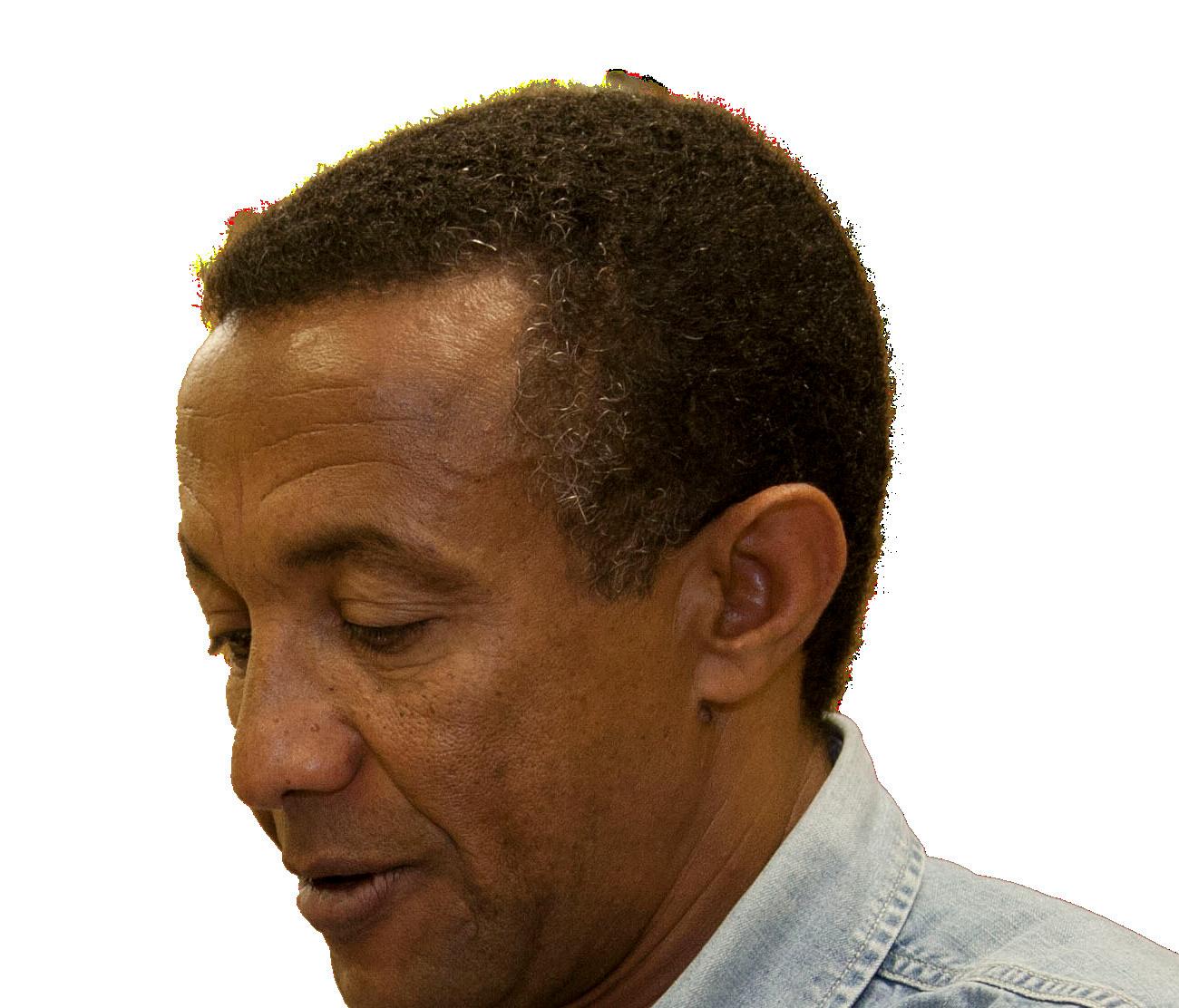
As stewards of Earth, we have an opportunity to actively promote a balance with nature grounded in science with an aim to protect and preserve our species and our planet’s health.”
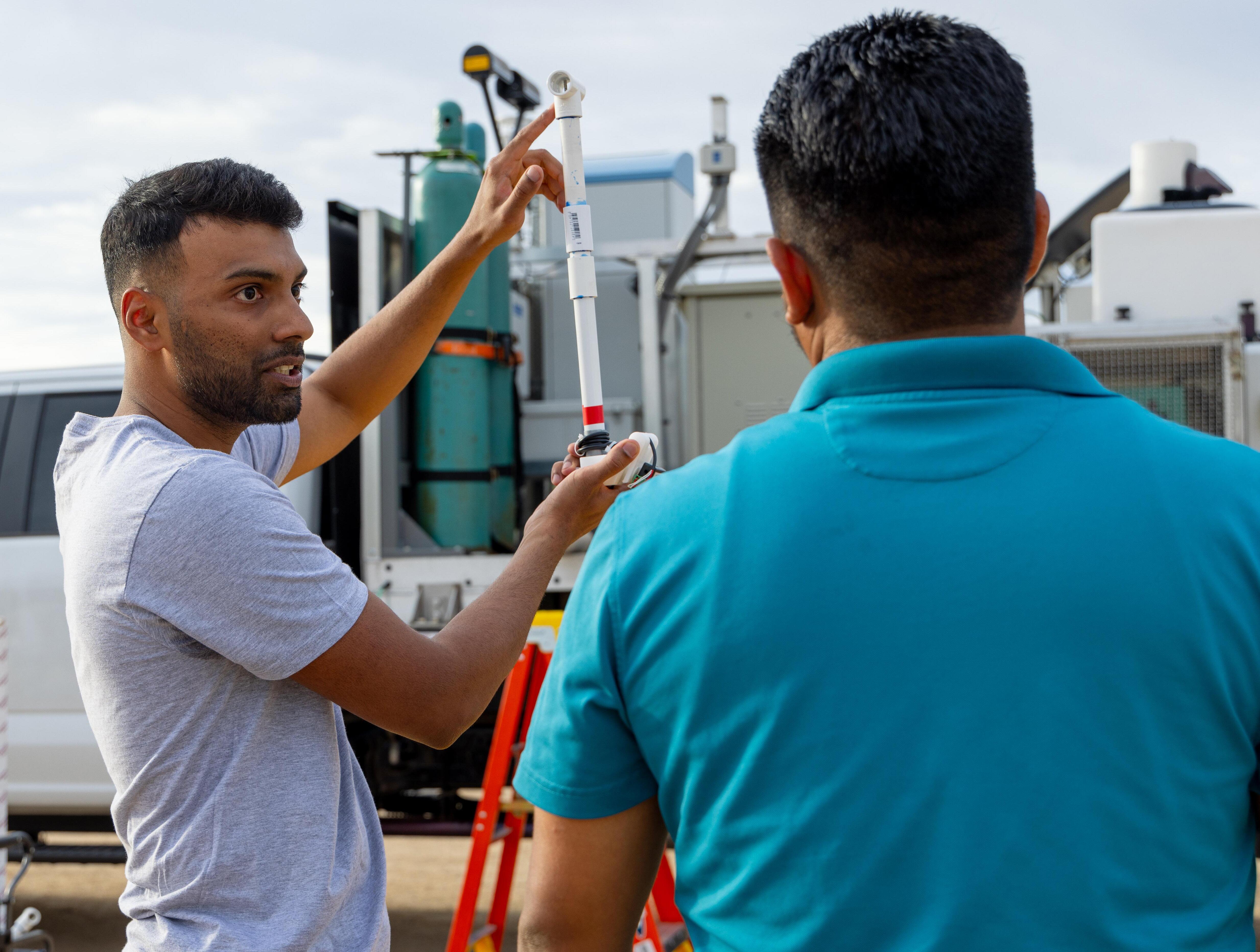
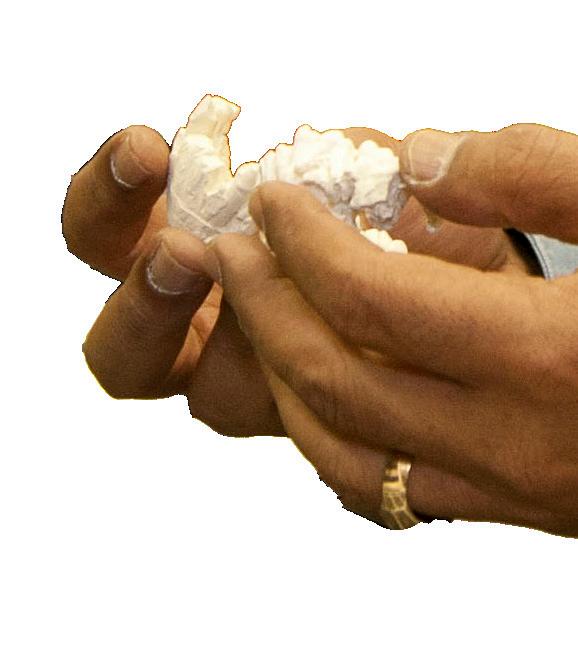
With the mission of producing use-inspired research and solutions for drylands across the world, the Global Drylands Center brings together researchers, stakeholders and specialists to support the future health of the complex ecosystem. From ranchers to urbanites, the center addresses urgent climate needs to better preserve the future of drylands.
